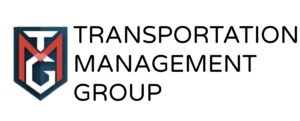Transportation Management Group
How to Start a Freight Brokerage: A Step-by-Step Guide
Home / Blog
How to Start a Freight Brokerage: A Step-by-Step Guide
- TMG
- September 16, 2024

The logistics industry is the backbone of global commerce, and at the heart of this industry are freight brokers. They play a crucial role in connecting businesses with carriers to ensure that goods are moved from point A to point B efficiently and cost-effectively. If you’re interested in becoming part of this thriving sector, starting a freight brokerage can be a lucrative and fulfilling venture. This guide will walk you through everything you need to know to get started.
What is a Freight Brokerage?
Before diving into the steps, let’s define what a freight brokerage is. A freight brokerage acts as an intermediary between shippers (companies that need to move goods) and carriers (trucking companies or transportation providers). The broker is responsible for matching available freight with reliable carriers, negotiating rates, and ensuring timely and safe delivery. For these services, freight brokers earn a commission, typically a percentage of the total shipping cost.
The freight brokerage industry is growing rapidly, driven by the rise of e-commerce and the increasing demand for efficient transportation solutions. If you have strong communication skills, a knack for problem-solving, and an interest in logistics, starting a freight brokerage could be the right move for you.
Step 1: Understand the Freight Brokerage Business
What Freight Brokers Do
Freight brokers are responsible for managing the movement of goods from one location to another. This involves understanding the needs of shippers, finding suitable carriers, negotiating shipping rates, and ensuring that all parties adhere to schedules. Brokers also handle any unforeseen issues during transit, such as delays or changes in route. Ultimately, their goal is to provide value to both shippers and carriers by facilitating seamless transportation.
Skills and Knowledge Needed
To succeed as a freight broker, you need strong communication, negotiation, and organizational skills. A good understanding of the logistics industry is essential, as well as the ability to manage multiple moving parts at once. Brokers often work under pressure to meet deadlines, so being able to handle stress and think on your feet is crucial.
Market Demand & Opportunity
The freight brokerage industry is ripe with opportunity. With the ongoing growth of e-commerce, businesses are constantly seeking efficient and cost-effective ways to ship products. According to industry reports, the global logistics market is expected to reach $12.98 trillion by 2027, creating a wealth of opportunities for freight brokers to tap into.
Step 2: Develop a Business Plan
Business Structure
Before you begin, you’ll need to decide on the legal structure of your freight brokerage. Common options include sole proprietorship, Limited Liability Company (LLC), or corporation. Most small freight brokerages start as LLCs because it offers legal protection for personal assets while being simpler to set up than a corporation.
Market Research
Conducting thorough market research is critical to the success of your freight brokerage. Identify a niche or specialization within the freight industry, such as perishable goods, oversized loads, or regional shipping. Understanding your niche will help you target the right shippers and carriers. Look for gaps in the market where you can offer a unique value proposition, whether it’s faster delivery times, specialized handling, or cost savings.
Funding Needs
Starting a freight brokerage requires some initial investment, though the costs are relatively low compared to other types of businesses. You’ll need funds for licensing, bonding, insurance, software, office equipment, and marketing. If you don’t have the necessary capital, consider choosing a factoring company.
Revenue Projections
Freight brokers typically earn a commission on the shipping cost, which can range from 10% to 30%. By building a solid network of shippers and carriers and consistently brokering loads, your earnings can grow quickly. However, it’s important to keep cash flow in mind, as brokers often pay carriers upfront and may not receive payment from shippers for 30 to 60 days. This is where freight factoring will help your business.
Step 3: Legal Requirements
Obtain a Freight Broker License (FMCSA Authority)
To legally operate as a freight broker in the U.S., you’ll need to obtain a Motor Carrier Operating Authority, also known as a freight broker license, from the Federal Motor Carrier Safety Administration (FMCSA). The application process involves filing the OP-1 form and paying a registration fee.
Get a Freight Broker Bond (BMC-84)
A key requirement for becoming a licensed freight broker is securing a $75,000 freight broker bond (also known as a BMC-84). This bond acts as a guarantee to your clients that you will operate in compliance with FMCSA regulations. In the event of a dispute or financial loss, the bond protects shippers and carriers from fraudulent or dishonest practices.
Register with the Unified Carrier Registration (UCR)
All freight brokers must register with the Unified Carrier Registration system. This registration is required to operate in interstate commerce and helps fund safety programs and enforcement efforts.
Process Agent Registration (BOC-3)
Freight brokers must also designate a process agent in every state they plan to operate in. A process agent is a representative who can receive legal documents on your behalf. This requirement is fulfilled by filing the BOC-3 form with the FMCSA.
Get Insurance Coverage
While not legally required, many shippers and carriers prefer to work with brokers who carry insurance. Contingent cargo insurance and general liability insurance are common policies for freight brokers. These cover losses due to damage or accidents during transit, giving both you and your clients peace of mind.
Step 4: Set Up Your Office
Required Tools
Running a freight brokerage efficiently requires several key tools. Freight management software will help you track loads, manage paperwork, and streamline communication with shippers and carriers. Load boards are essential platforms where brokers post available loads and carriers can bid on them. Popular load boards include DAT and Truckstop.com.
Office Equipment
Whether you plan to work from home or set up a physical office, you’ll need basic office equipment like a computer, phone system, and reliable internet connection. Some brokers prefer to work from home to reduce overhead costs, while others opt for a small office to project a more professional image.
Step 5: Build Relationships with Shippers and Carriers
Finding Carriers
Building a network of reliable carriers is critical to your success as a freight broker. Start by using load boards to connect with carriers and develop relationships with those who offer competitive rates and dependable service. Over time, you’ll establish a preferred network of carriers who can meet the needs of your shippers.
Finding Shippers
Cold-calling, networking, and attending trade shows are effective ways to connect with shippers. When reaching out to potential clients, emphasize your expertise, reliability, and ability to save them time and money. Building trust with shippers is key to securing repeat business.
Negotiating Rates
Negotiating competitive yet profitable rates is a fine balance. You’ll need to offer rates that are attractive to shippers while ensuring you make a profit after paying the carrier. Research industry standard rates for different types of freight and regions to help you negotiate effectively.
Step 6: Marketing Your Freight Brokerage
Online Presence
A professional website is essential for any freight brokerage. Your website should include information about the services you offer, your areas of expertise, and how shippers and carriers can get in touch with you. Additionally, using search engine optimization (SEO) techniques can help potential clients find you online.
Networking
Industry events, trade shows, and associations like the Transportation Intermediaries Association (TIA) are great places to network with potential clients and partners. Joining freight broker associations can also provide access to valuable resources and training opportunities.
Cold Outreach
Cold outreach, through both email and phone calls, is a tried-and-true method for finding new clients. Be prepared with a compelling pitch that highlights your unique selling points, such as your experience, industry knowledge, or ability to solve common freight challenges.
Step 7: Scaling Your Business
Hiring Freight Agents
As your brokerage grows, you may want to hire freight agents to help you manage the workload. Freight agents work under the umbrella of your brokerage and help find new clients and carriers. They typically earn a commission for each load they broker.
Expanding Services
Once you’ve established a solid base of clients, consider expanding your service offerings. This could include specialized freight services (e.g., handling hazardous materials) or adding value-added services like warehousing, inventory management, or supply chain consulting.
Automating Processes
Investing in technology to automate time-consuming tasks such as invoicing, tracking, and dispatching can save you time and allow you to focus on growing your business. Many freight management systems offer automation features that can help streamline operations.
Expanding Geographically
Once you’ve built a strong reputation in your initial market, consider expanding into new regions. This could involve adding new carriers to your network, reaching out to shippers in different geographic areas, or even opening additional offices.
Challenges and Solutions
Managing Cash Flow
One of the biggest challenges for freight brokers is managing cash flow. Since brokers often pay carriers upfront but may not receive payment from shippers for 30 to 60 days, this can create cash flow gaps. To mitigate this, consider working with a factoring company that can advance you a percentage of your invoices in exchange for a small fee.
Staying Competitive
The freight brokerage industry is competitive, so finding ways to differentiate yourself is essential. Focus on providing exceptional customer service, developing a niche market, and building strong relationships with both shippers and carriers.
Dealing with Difficult Shippers or Carriers
From time to time, you may encounter difficult clients or carriers. When this happens, it’s important to remain professional and focus on finding a solution. Clear communication and setting expectations upfront can help prevent misunderstandings.
Conclusion
Starting a freight brokerage is a rewarding opportunity for those with the right skills and mindset. By following the steps outlined in this guide—developing a solid business plan, understanding the legal requirements, building strong relationships, and continuously improving your services—you can establish a successful freight brokerage in the growing logistics industry. With the right approach, your freight brokerage can thrive in a dynamic market filled with endless possibilities.
